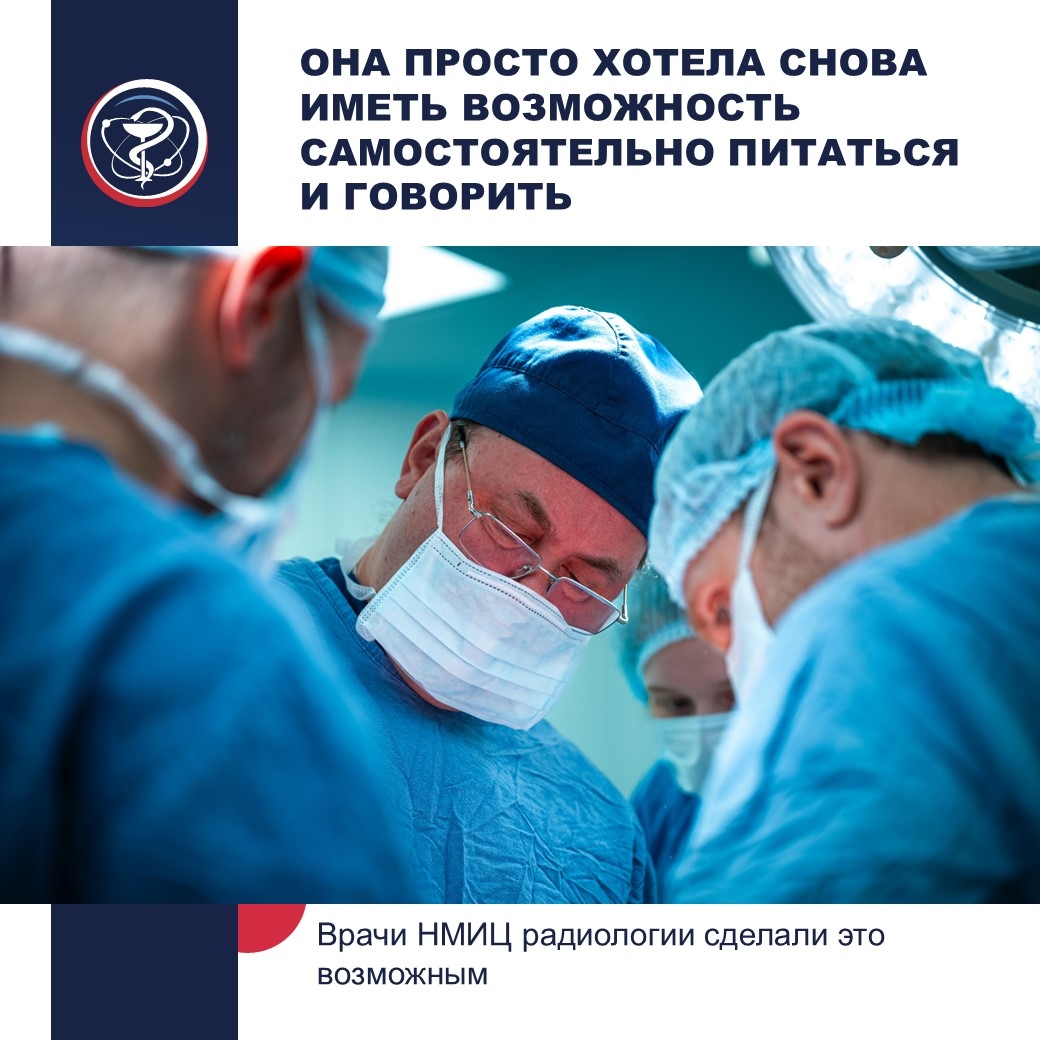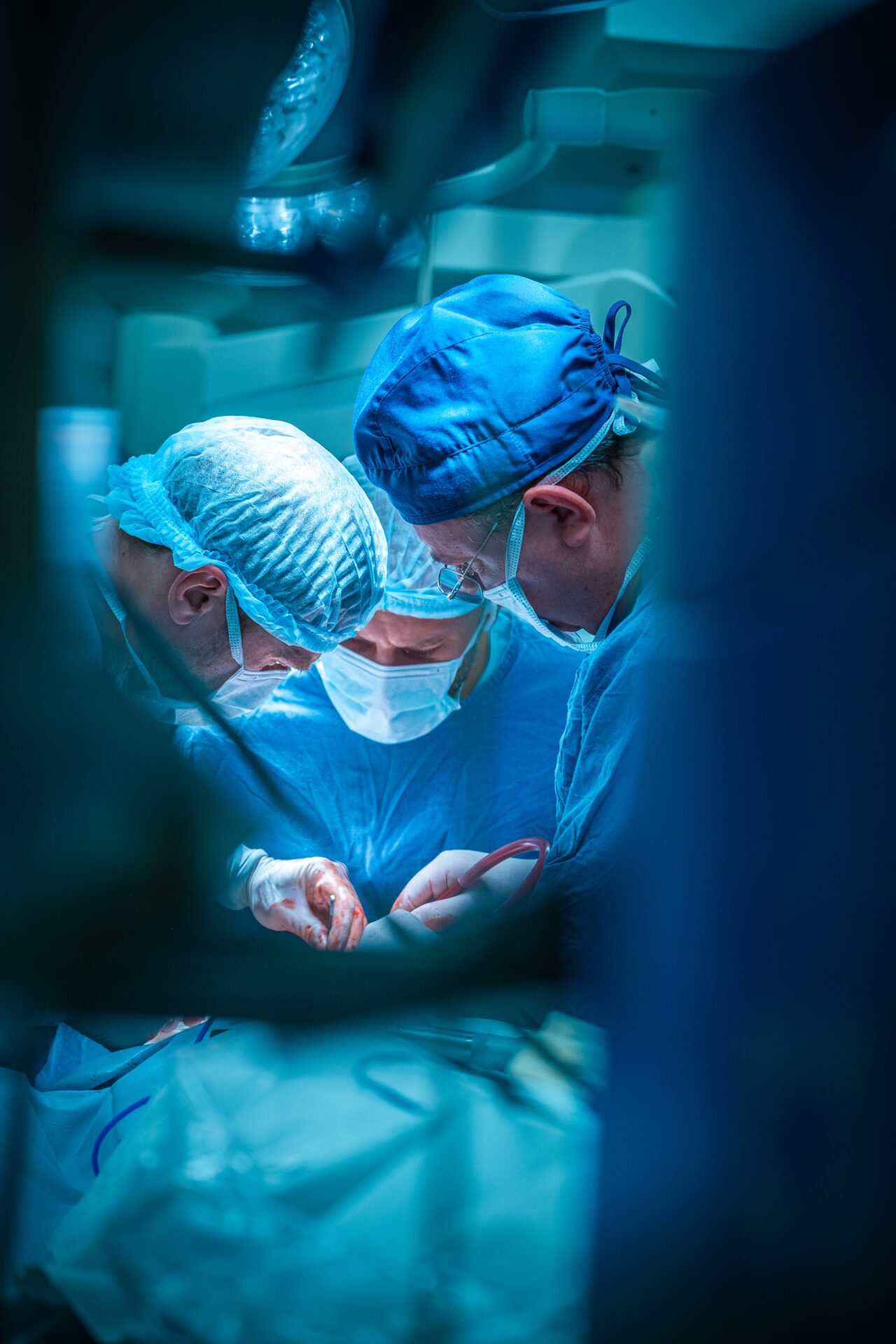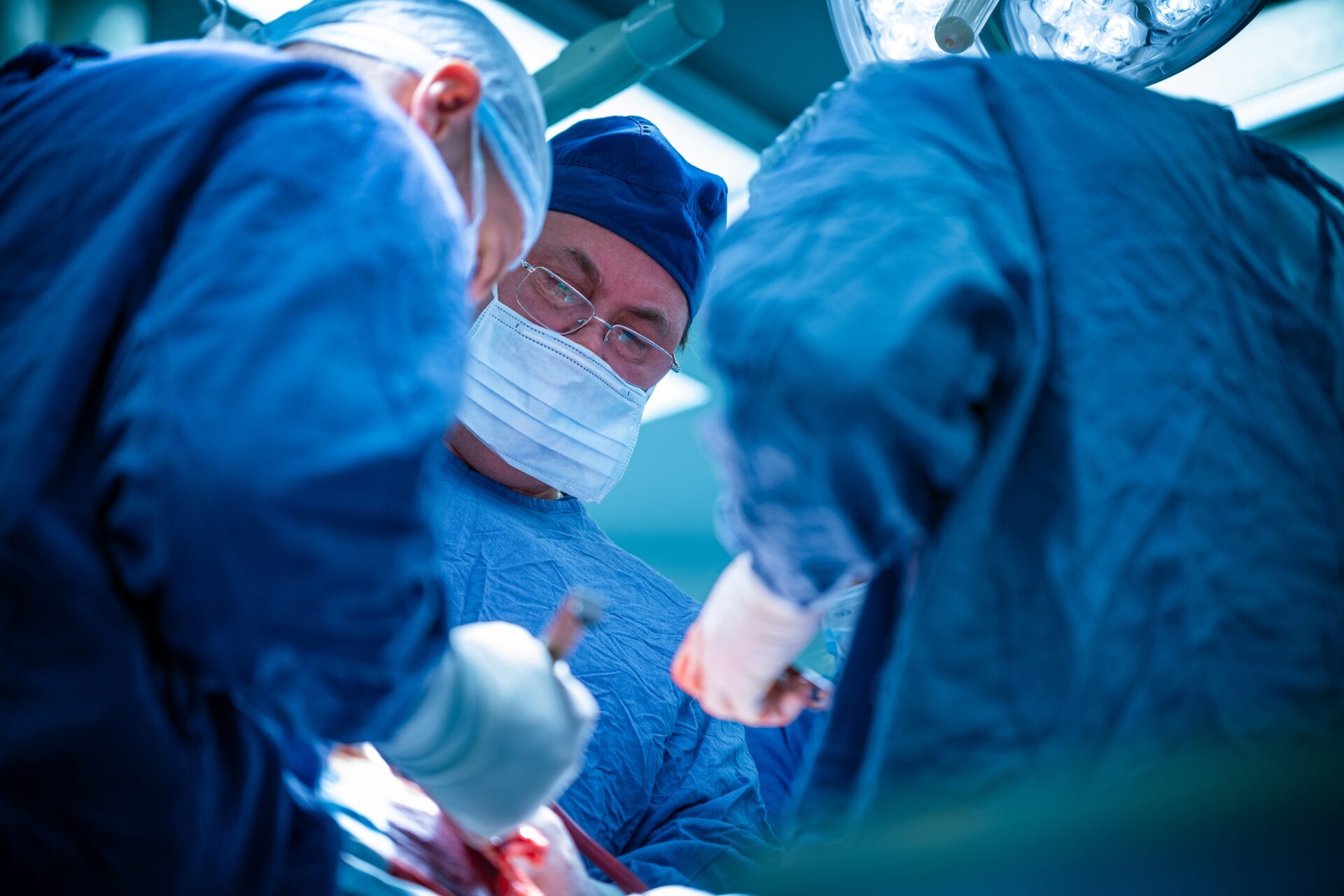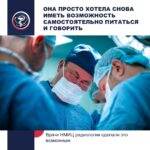SHE JUST WANTED TO BE ABLE TO EAT AND SPEAK INDEPENDENTLY AGAIN. THE DOCTORS AT THE NMRRC MADE THIS POSSIBLE
A 54-year-old woman from Moscow turned to the Microsurgical Department of P. Hertsen Moscow Oncology Research Institute – the branch of the National Medical Research Radiological Centre of the Ministry of Health of the Russian Federation, after her disease returned. Cancer of the minor salivary glands of the hard palate is a rare and difficult-to-treat condition. Unfortunately, the initial surgery at another clinic did not manage to remove the tumor completely. And just a few months later — a recurrence.
At the institute, the woman was offered two treatment options: microsurgical reconstruction with a bone graft or the placement of special zigoma zygomatic oncological implants. After joint discussion, the surgeons and the patient chose the second option — less invasive and faster for recovery.
The operation was carried out by the microsurgery department team under the leadership of Professor Andrey Pavlovich Polyakov. The specialists had to remove the affected part of the upper jaw and simultaneously install implants that would serve as the foundation for a future prosthesis. «We performed a resection of the upper jaw with simultaneous placement of zygomatic oncological implants. This technology allows for quick restoration of functions (the patient can speak and eat) while ensuring reliable oncological control. In Russia, it is currently available in only a few centers», – noted Andrey Pavlovich.
The technology does not require extensive microsurgical reconstruction. There are no donor wounds, less trauma, and minimal risk of complications. The implants are fixed in the preserved bone structures, and within two to three weeks, a young woman can return to her normal life. «We have mastered the full range of technologies — both microsurgical and implant-based. This allows us to choose a solution individually, tailored to the specific patient», – adds Professor Polyakov. It is important to note that everything, from examination to implant modeling, is organized within the Center. The production and delivery of implants take no more than 7–10 days. Thanks to this, such operations are performed regularly at the National Medical Research Radiological Centre of the Ministry of Health of Russian Federation, with consistent results.
For the patient, this intervention became an opportunity not only to get rid of the tumor but also to maintain her quality of life. For the team, it was a confirmation that modern oncological surgery is a precise practice where the experience and coordination of the doctors determine the outcome just as much as the technology itself.












